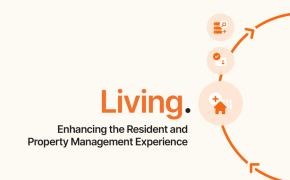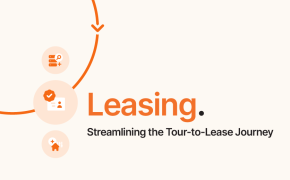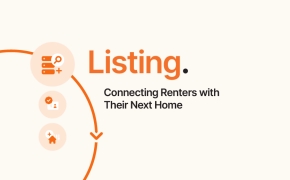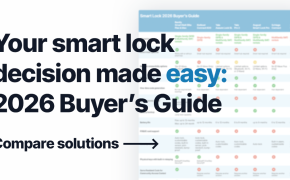58% of Renters Would Sacrifice Pools and Gyms for Smart Tech, Rently Survey Finds
New Rently survey shows tech-enabled living has shifted from nice-to-have to non-negotiable as renters prioritize safety, convenience, and control.
In 2025, pools are out, smart locks are in. According to a new survey from Rently, 58% of renters would ditch pools and gyms if it meant lower rent and better smart home features. As renters rethink what “move-in ready” really means, one thing is clear: tech-enabled living isn’t just a perk. It’s a dealbreaker.
What began with simple upgrades like programmable thermostats has evolved into full digital ecosystems. From keyless entry to voice-controlled lighting and 24/7 security monitoring, smart features are changing what “move-in ready” means. As these systems become more common, renters increasingly view them as standard, not optional.
But there’s more to this shift than convenience. Are renters truly willing to pay more for these features? Will they trade traditional amenities to get them? And how much trust do they place in smart home privacy?
To understand evolving renter preferences around smart home technology, Rently partnered with the third-party survey platform Pollfish on the 2025 Rently Smart Apartment Trends Report, exploring the attitudes, priorities, and concerns of 500 U.S. renters.
Key Findings
- More than half (58%) of renters would prioritize smart home technology over traditional amenities such as pools or gyms, particularly if rent savings are offered.
- 65% of renters find apartments more appealing if they offer smart home technology, with 31% prioritizing these features above similar units without them.
- 54% of renters expect modern rental properties to include smart locks, smart thermostats, and security cameras.
- 41% of renters cite feeling safer at home as their primary reason for wanting smart technology, surpassing motivations like energy savings (18%) or convenience (11%).
- Smart home security tech (36%) is considered more impactful on renters’ sense of safety than traditional factors like neighbors (28%) or on-site security staff (25%).
- 65% of renters are willing to pay extra monthly rent for smart amenities, with 52% comfortable paying over $20 per month more.
- Privacy and reliability remain major concerns, with 35% worried about unauthorized monitoring, 32% about smart lock malfunctions, and only 9% fully trusting smart technology without reservations.
“We’re witnessing a real shift in what renters consider essential,” said Rently CEO Merrick Lackner. “Smart home technology is no longer a nice-to-have. It’s a baseline expectation. This isn’t just about gadgets; it’s about giving renters more control, security, and comfort in their day-to-day lives. Property managers who move now can turn this shift into a true competitive edge.”
The Rise of the Tech-Obsessed Renter
Renters increasingly expect smart home features as standard offerings in rental properties. 54% of renters now anticipate having smart locks, thermostats, and security cameras available in a modern rental unit. Additionally, nearly half (48%) expect smart intercoms or video doorbells, while 45% look for smart lighting, and 39% desire smart appliances.

The presence of smart home technology significantly influences rental appeal, with 65% of renters indicating it makes properties more attractive. Specifically, 31% of respondents said they would prioritize properties with smart technology over similar ones without it, while 34% view such features as a beneficial bonus. Conversely, a minority of 15% stated that smart technology does not affect a property’s appeal to them.
Despite strong overall interest, renter attitudes toward smart home technology remain polarized. While 17% of renters say they would refuse to rent a property lacking smart home features, another 18% claim these features hold no importance in their rental decision. Additionally, 33% of renters have experienced frustration due to a lack of smart technology in past rentals, with 15% explicitly stating that the absence of such features influenced their decision to leave or reject a property. When asked about the single most influential smart feature, renters highlighted smart security cameras (30%) and apps for managing rent, payments, and maintenance (21%) as top considerations.
Goodbye Pools, Hello Smart Tools: Amenities Reimagined
Renters are increasingly willing to prioritize smart home technology over traditional amenities. In fact, 58% indicate they would consider sacrificing amenities such as pools or gyms in favor of enhanced smart home features, particularly if it resulted in rent savings. Among these renters, 44% state their decision would depend on the specific rent savings offered, while 27% explicitly say they’d prefer smart technology over luxury amenities regardless of other factors.
When asked specifically which amenities they would sacrifice first for improved smart features, 31% of renters identify on-site gyms as the most expendable, followed closely by 27% willing to give up pool access. Amenities like reserved parking (17%) and larger floor plans (8%) are considered less negotiable, suggesting renters value practical daily conveniences alongside their preference for smart home technology. Only 18% of renters would not be willing to give up any amenities, underscoring a clear trend toward prioritizing technology in contemporary housing choices.

Safety is the New Square Footage
Safety has become a central driver behind renters’ demand for smart home technology, with 41% citing “feeling safer at home” as the primary motivation. This significantly outpaces other factors, such as saving money on energy bills (18%) or managing everything conveniently from their phones (11%). This safety-first mindset underscores the growing role technology plays not merely as a convenience but as an essential component of secure residential living.

Smart home security technology, including smart locks, cameras, and alerts, is now the most influential factor affecting renters’ sense of safety around their apartments, chosen by 36% of respondents. This surpasses other traditional security factors like neighbors (28%) or even on-site security staff (25%). Over half (50%) of renters report that they would feel less safe in a building lacking smart security features. Additionally, 17% of renters say the absence of smart locks or controlled access would lead them to continue their apartment search elsewhere entirely.
Security cameras, in particular, stand out as essential features. More than half (54%) of renters expect modern rentals to include smart security cameras, and 51% are explicitly willing to pay extra for them. Renters specify that cameras should be placed primarily at apartment entryways (51%) and parking lots (25%), highlighting these areas as critical for ensuring their security and peace of mind.
Smarter Homes, Bigger Returns: Renters Ready to Pay and Stay
Renters clearly demonstrate willingness to pay extra for smart home technology, with 65% prepared to pay additional monthly rent for these features. Specifically, more than half (52%) of renters are comfortable paying at least $20 more per month to secure smart home amenities. This includes 20% willing to spend $21–$40 extra, 17% open to an additional $41–$60, and 7% willing to pay more than $81 per month.
The prospect of guaranteed energy savings amplifies renters’ willingness to pay a premium. Nearly 80% of renters would agree to higher rent if smart home technology ensured lower utility bills, and approximately 51% of these renters would pay over $20 extra each month for this specific benefit. The breakdown includes 25% of renters willing to pay $21–$40 extra monthly, 17% open to $41–$60, and 11% ready to pay over $61 more per month for verified energy savings.
Smart home features not only justify higher rents but also contribute significantly to tenant retention. A substantial majority (77%) would consider signing a longer-term lease of two years or more if smart security and energy-saving devices were included, with 28% definitively ready to commit to extended leases under these conditions. Additionally, 57% of current renters indicate they would be much more likely to renew their leases if their communities added smart locks, security cameras, and remote access during their existing tenancy. Further highlighting the appeal, given the choice between a cheaper apartment without smart tech and a slightly more expensive smart-enabled unit, 52% would choose the latter, underscoring smart technology’s strong influence on leasing decisions.

Privacy Matters: Navigating Renters’ Smart Tech Fears
While smart home technology is clearly popular among renters, concerns remain regarding privacy and reliability. 35% of renters worry about being monitored without consent, making this their top concern. Additionally, 32% fear potential malfunctions in smart locks, and 31% express anxiety over technology failing during emergencies. Overall, just 9% of renters fully trust smart technology without reservations, indicating widespread caution among renters despite their enthusiasm for tech-enabled living.
Renters also voice practical concerns about technology reliability, including being locked out due to app failures (26%) or lacking backup access if technology fails (26%). Privacy-related anxieties also surface prominently, with renters specifically worried about location-tracking apps (19%) and indoor surveillance cameras—even when turned off (17%). Moreover, 18% are uneasy about unauthorized access by property management. Addressing these trust and reliability issues is essential for successfully integrating smart technology into residential rental environments.

Conclusion
As renters increasingly seek out apartments equipped with smart technology, property managers have a clear path to enhancing appeal, boosting occupancy, and improving retention. Offering features like remote-controlled smart locks, energy-efficient thermostats, and integrated security cameras not only meets renter expectations but also directly addresses their top priorities of safety, convenience, and efficiency.
In this rapidly evolving market, properties that invest in comprehensive smart home solutions—such as app-driven access management, automated climate control, and proactive security monitoring—can significantly differentiate themselves. By aligning property features with renter preferences identified in this report, multifamily operators can confidently capture greater renter demand, command premium pricing, and ensure longer-term lease commitments.




